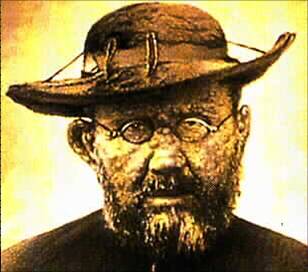At 1:30 this morning — 5:30 Saturday afternoon in Rome — Pope Francis walked to the holy doors in St Peter’s Basilica, which are opened only a few times each century, and convoked the Extraordinary Jubilee of Mercy.
This Holy Year of Mercy begins in December. For the duration of the year, the holy doors in Rome’s basilicas will be open, symbolising the extraordinary pathways to grace available to the Church during the holy year.
“This is the time of mercy,” Pope Francis declared.
It is important that the lay faithful live it, and bring it into different social environments. Go forth!
In fact, Pope Francis has made God’s mercy the centrepiece of his pontificate. And in doing so, he joins the company of Pope Benedict XVI and Pope John Paul II.
Pope Benedict invoked divine mercy when he was elected pope in 2005.
Dear friends, this deep gratitude for a gift of Divine Mercy is uppermost in my heart in spite of all. And I consider it a special grace which my Venerable Predecessor, John Paul II, has obtained for me. I seem to feel his strong hand clasping mine; I seem to see his smiling eyes and hear his words, at this moment addressed specifically to me, ‘Do not be afraid!’
St John Paul II invoked divine mercy again and again during his 27 years as pope. After the attempt on his life, he visited and forgave his would-be assassin, relating the importance he attached to divine mercy:
Right from the beginning of my ministry in St Peter’s See in Rome, I consider this message my special task. Providence has assigned it to me.
The Polish pope was very familiar with the diary of Sr Faustina. He read it as a priest, and defended it as a bishop, even though the Vatican condemned it. As pope he lifted the ban, and heeded the request our Lord made to Faustina, that the Church honour his divine mercy on the Sunday after Easter. Moreover, Pope John Paul canonised St Faustina in 2000, making her the first saint of the new millennium.
There is an interesting passage in Faustina’s diary which may describe the Polish pope:
I bear a special love for Poland, and if she will be obedient to My will, I will exalt her in might and holiness. From her will come forth the spark that will prepare the world for My final coming.
Apocalyptic themes permeate Faustina’s diary.
You will prepare the world for My final coming.
Before the Day of Justice, I am sending the Day of Mercy
Before I come as a just judge, I am coming first as the King of Mercy. Before the day of justice arrives, there will be given to people a sign in the heavens of this sort: All light in the heavens will be extinguished, and there will be great darkness over the whole earth. Then the sign of the cross will be seen in the sky, and from the openings where the hands of feet of the Saviour were nailed will come forth great lights which will light up the earth for a period of time. This will take place shortly before the last day.
None of us are obliged to believe the apocalyptic prophecies in Faustina’s diary — nor are we obliged to accept that Jesus really appeared to her. Nonetheless, Faustina is a holy woman, canonised by a pope who is himself now canonised. That’s enough for me take seriously everything she writes.
It may be that Pope Francis thinks along similar lines. He has repeatedly advised journalists to read Robert Hugh Benson’s The Lord of the World, which is an apocalyptic novel written in 1908, describing a world eerily similar to the modern day. Last month, speaking to priests in Rome, he suggested the times are urgent:
The Holy Spirit speaks to the whole Church of our time, which is a time of mercy. I am sure of this. We have been living in a time of mercy for the past 30 years or more, up to today.
Whatever of end time prophecies, one thing is certain. You and I will die some time in the next hundred years. The world will end for each one of us. So with that in mind, we can all profit from the central message St Faustina related: a message of unconditional love and infinite mercy.
Tell sinners that I am always waiting for them, that I listen intently to the beating of their heart . . . When will it beat for Me?






This is so beautiful…………..and as I read the last quote of our Lord, I am crying…………….so ashamed of all my sins and so wanting my heart to beat only for Him………….Oh God help me…………….